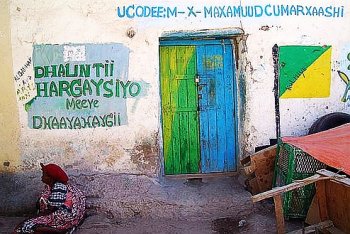
A fragile state is a low income country characterized by weak state capacity and/or weak state legitimacy leaving citizens vulnerable to a whole range of shocks. A group of 35 to 50 countries is falling behind this category. It is estimated that out of the world's six billion people, 26% live in fragile states [ [Wikipedia: Fragile State ]]
The paralysis in the development of fragile states have consequences, as part of the whole states of the world, in the evolution of the global governance and in that of the role of the state as part of a more harmonious coordination of interdependencies between the different kinds of institutions. This report examines the causes of the lack of legitimacy in fragile states and develop a list of recommendations and proposals oriented towards donor institutions.
The reports points out that state–society relations are at the centre of the analysis of state legitimacy in situations of fragility. State legitimacy concerns the very basis on which the state and society are linked and by which state authority is justified. To understand how legitimacy relates to state fragility, therefore, it is necessary to take an empirical approach to legitimacy and ask not about internationally established standards of rights, fairness or justice, but about what the people consider to be legitimate.
It is also essential to understand local power relations – within society, and between the state and various social groups. Since contexts vary tremendously, it follows that both the nature of legitimacy problems faced by states and the causes of those problems are diverse. Because legitimacy is in the eye of the beholder, existing sources of legitimacy within states in fragile situations can be used by different actors to strengthen or weaken the state. Such sources of legitimacy may very well fall short of international normative standards (such as human rights norms), but their significance for efforts to strengthen the state must not be underestimated.
 States cannot be defined only as a sector or an actor that enters into specific relations with other actors or sectors, such as civil society. In well-functioning states, the state is also a structure that pervades everyday practices and helps define the schemas through which and with which individuals think and act. The state is ‘in’ individuals, implicitly and explicitly framing the social fabric. States in fragile situations stand out not only as lacking in capacity to govern in an administrative sense, but also as lacking the ability to be present in and to reflect and help define the everyday practices and institutions
States cannot be defined only as a sector or an actor that enters into specific relations with other actors or sectors, such as civil society. In well-functioning states, the state is also a structure that pervades everyday practices and helps define the schemas through which and with which individuals think and act. The state is ‘in’ individuals, implicitly and explicitly framing the social fabric. States in fragile situations stand out not only as lacking in capacity to govern in an administrative sense, but also as lacking the ability to be present in and to reflect and help define the everyday practices and institutions
of their people.
The formation of a state of the kind envisaged by donors presupposes that citizens take for granted the state’s presence and its position as the highest authority. However, states in fragile situations are characterized by an inability to define the basic parameters of everyday practices in different spheres.
The proposals suggest the donors to keep in mind how the legitimacy is distributed among the diferent actors in the territory of a fragile state. The donors intervention is often erroneously based solely on external criteria of social and political effectiveness (e.g. on the rise of democracy and human rights, following a Western pattern), and doesn’t care about the risk of eroding the state legitimacy.